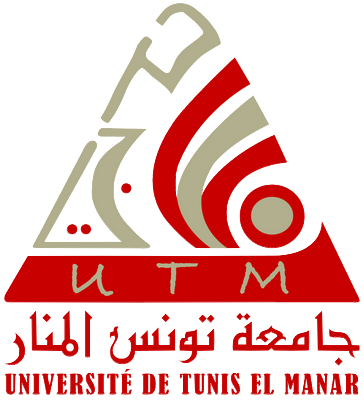Université de Tunis El Manar Bienvenue

Carbon Emission at the University of
Tunis El Manar 2016-2022
Towards
a Net Zero Target
At UTM, our commitment to sustainability is evident through diligent recording and public disclosure of Scope 1+2 emissions since 2016 and Scope 3 emissions since 2010, in accordance with Tunisian government data (for scope3). By implementing significant measures to reduce Scope 1+2 emissions and proactively reporting on Scope 3 emissions, our Net Zero Carbon Roadmap focuses on areas directly under our control, ensuring easier measurement and encompassing the full impact of our carbon emissions.
Please check our full emission reduction report here : http://www.utm.rnu.tn/utm/fr/politiques--utm-ghg-emission-report
The invaluable support from the MedEcoSure project https://www.enicbcmed.eu/projects/med-ecosure, funded by the European Commission enables us to consistently report on Scopes 1, 2, and 3 emissions, enabling comprehensive efforts to address our carbon footprint. This holistic approach allows us to identify opportunities and allocate resources more effectively towards impactful carbon reduction measures.

Aligned with the Tunisian government's commitment, our University Board has set strategic monitoring indicators to achieve Carbon Net Zero. Our targeted timelines are Scope 1 by 2026, Scope 2 by 2036, and Scope 3 by 2050. As part of our Carbon Net Zero roadmap, we re-baselined the University's total carbon emissions in 2016, considering Scopes 1, 2, and 3. We aim to achieve a 29% reduction against this new baseline over a seven-year period, with an initial annual target reduction of 6% prior to the pandemic. Due to pandemic impacts, we have recalibrated our target to 10-25% reduction.

Table1


Our pandemic experience has served as a learning opportunity, leading us to implement numerous good practice measures. These include remote working, optimizing university closures during holidays, enhancing green spaces, and collaborating with civil society organizations to implement ecological construction tips. Such adaptive measures have propelled us closer to our Carbon Net Zero objective. http://www.utm.rnu.tn/utm/fr/universite--dev-dure
Engaging the entire University community is vital in achieving our ambitious goals. For this purpose, we have devised a new university governance framework, contingent on the successful execution of the UTM PAQ GAGE project. This project involves the creation and publication of policies and action plans, building upon the visionary University Green Campus and open Leisure Space designed by Prof. Noaman Rebai http://www.utm.rnu.tn/utm/fr/politiques--green-campus in collaboration with GDA Sidi Amor https://sidiamor.org/ .
Equipping our community with essential carbon knowledge and establishing dedicated Work Streams is key to developing and implementing specific carbon reduction plans. Our workforce consists of staff ambassadors from both academic and professional services sectors at UTM http://www.utm.rnu.tn/utm/fr/politiques--odd
Additionally, we highly value student involvement, relying on our student sustainability society and clubs, including Enactus and Google Development Clubs, whose active engagement amplifies the impact of our Carbon Reduction project http://www.utm.rnu.tn/utm/fr/vie-etudiante--odd-clubs .
Table 1 presents a detailed breakdown of UTM's carbon footprint, categorized by scope, allowing us to effectively target carbon reduction. Our proposed four Work Streams - Energy & Water, Travel & Transportation, Commuting, and Waste - are aligned with relative milestone targets for 2026, 2036, and 2050. Recognizing the significant impact of pandemic measures on emissions in 2020 and 2021, we remain flexible in adapting our strategies.
Taking responsibility for continuous action, we are committed to updating plans within our respective areas to achieve milestones in line with overarching targets. Resource assessments prioritize projects like solar energy and wind turbines that generate significant carbon savings. The Action Plan, developed by Professor Noaman Rebai in 2021 http://www.utm.rnu.tn/utm/fr/politiques--utm-ghg-emission-report , outlines predicted and targeted carbon savings, investment plans, and policies.

Guided by our Sustainability Committee, action plans are harmonized with the university's broader reformulated vision and other strategic initiatives like EcoCampus. Close collaboration with the university's investment program ensures continuous development and enhancement of our sustainability efforts, while regular reporting of progress towards Carbon Net Zero keeps the University Governing Team informed.
Moreover, as active members or partners of international sustainability networks, we reaffirm our commitment to global environmental initiatives, seeking to contribute positively to the planet and society at large.
In summary, this document provides an overview of UTM's comprehensive Net Zero Carbon 2040-50 Roadmap and the corresponding carbon reduction program, encompassing scope 3 emissions over the long term. Specific targets for scope 1 (2016-2026) and scope 2 (2016-2038) reflect our determination to not only reduce our environmental impact but also extend sustainable practices to all stakeholders, demonstrating our responsibility and care for the environment and the broader community

